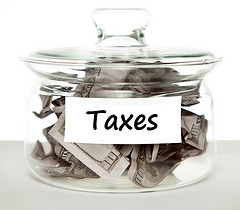
Percent vs. Aggregate Method
When it comes to taxing the bonus an employer may choose the percentage method versus the aggregate method. Under the aggregate or wage holding bracket method the employer will use the withholding tables generally used for the employee normal paycheck. Then, the supplemental wages are aggregated with the employee’s normal pay and taxes are withheld accordingly.
Under the percent method or flat rate method the employer will have the bonus taxed based on a specific percentage which is generally 25%. Normal wages are not added to the bonus and they are taxed under the withholding tables provided to employers in Publication 15.
Ways To Defer
Employees in this situation may be able to defer the taxation a couple of ways. First, if allowed, they can elect to have their bonus put into their retirement plan such as their 401k. This is assuming they haven’t already contributed the maximum. Second, they may be able to see if their employer will defer payment of the bonus until the following year. This may be beneficial if the employee is expecting to make less income in the following year.
Additional information from the IRS can be found here.